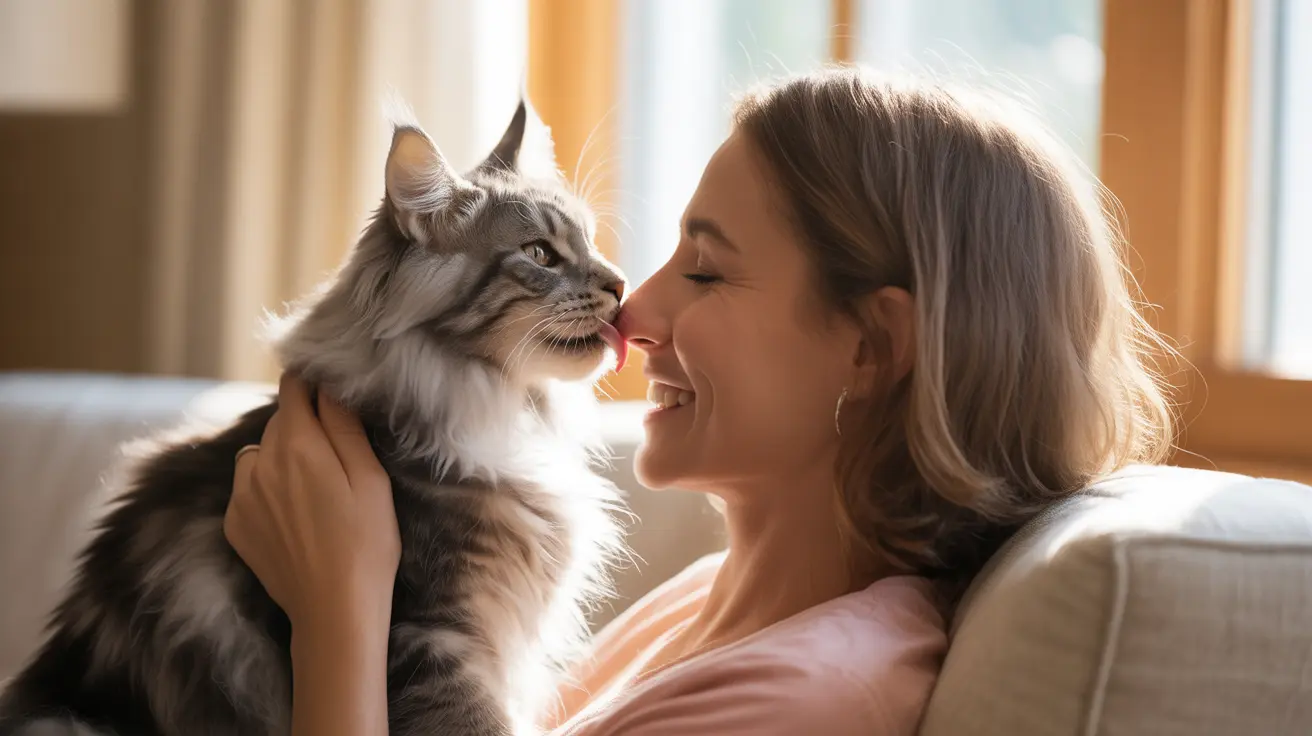The Science Behind Cat Nose Licking
Cats' tongues are remarkable tools equipped with tiny, backward-facing barbs called papillae. These specialized structures serve multiple purposes in grooming and social interactions. When your cat licks your nose, they're using this sophisticated organ to gather information about you while simultaneously engaging in a social behavior.
The feline vomeronasal organ (also known as Jacobson's organ) plays a crucial role in this behavior. When cats lick, they're not just showing affection – they're actually collecting chemical information about their environment and the individuals around them.
Primary Reasons for Nose Licking
Expressing Affection and Trust
When your cat licks your nose, it's often a clear sign of affection and trust. This behavior mimics the grooming patterns observed between cats who share strong social bonds. By treating you as they would a fellow feline family member, your cat is demonstrating that you're part of their inner circle.
Social Bonding and Territory Marking
Cats use scent marking to create familiar territories and strengthen social bonds. When they lick your nose, they're depositing their scent on you, effectively marking you as part of their family group. This behavior helps create a shared scent profile that makes them feel more secure and connected to you.
Attention-Seeking Behavior
Sometimes, cats learn that licking their owner's nose is an effective way to get attention. The sensitive nature of human noses means we're likely to respond quickly to this gesture, which can reinforce the behavior if your cat is seeking interaction or resources.
Understanding Your Cat's Body Language
To better interpret nose licking behavior, it's important to consider your cat's overall body language. A relaxed posture, slow blinking, and gentle purring typically indicate affectionate intentions. However, if your cat seems tense or exhibits other unusual behaviors, the nose licking might signal stress or anxiety.
When to Be Concerned
While nose licking is generally harmless, excessive licking behavior might indicate underlying issues. Watch for signs of compulsive behavior, anxiety, or medical conditions that might require veterinary attention. If your cat suddenly increases their licking behavior or shows other changes in routine, consult with your veterinarian.
Frequently Asked Questions
Why does my cat lick my nose— is it a sign of affection or something else?
Cat nose licking is primarily a sign of affection and social bonding. It's a behavior that mirrors how cats interact with trusted family members in their social group, indicating that they view you as part of their family.
What does it mean when my cat licks my nose and then bites me?
This behavior, known as "love biting" or "petting aggression," usually indicates overstimulation. Your cat might transition from affectionate licking to playful or warning bites when they've had enough interaction.
How can I tell if my cat is licking my nose to get attention or to bond?
Look at the context and timing of the behavior. If your cat typically licks your nose when you're busy or before mealtimes, it's likely attention-seeking. Bonding-related licking usually occurs during quiet, relaxed moments together.
Is it normal for cats to lick human noses because of the salty taste or scent?
Yes, it's normal. Human skin contains natural salts from sweat that cats find appealing. Additionally, our noses carry strong scent markers that cats find interesting to investigate.
Should I be concerned if my cat licks my nose excessively or constantly?
Excessive licking might indicate anxiety, stress, or medical issues. If your cat's licking becomes compulsive or is accompanied by other behavioral changes, consult with your veterinarian to rule out underlying problems.






